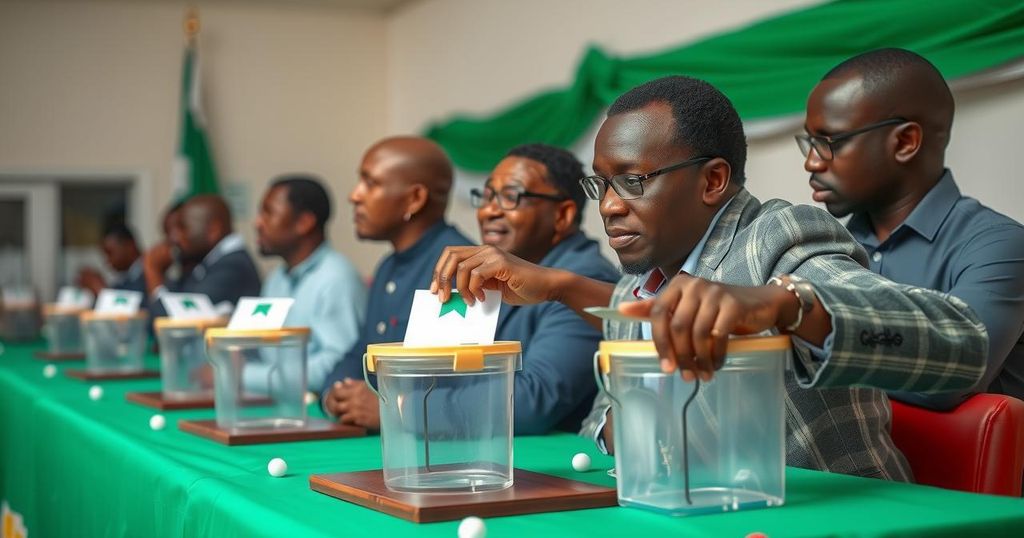Comoros Parliamentary Elections: Opposition Boycotts Amid Allegations of Authoritarianism

Comoros held a parliamentary election on Sunday, boycotted by some opposition parties who cited concerns over authoritarianism and electoral integrity. Approximately 330,000 voters registered, but low turnout was expected. Assoumani’s ruling party previously secured a majority in the 2020 elections, which were also boycotted by opposition factions. The political climate remains tense, compounded by allegations of electoral fraud and increasing repression since Assoumani’s assumption of power.
On Sunday, Comoros conducted a parliamentary election that faced a boycott from several opposition factions. These parties accused the ruling administration, led by President Azali Assoumani, of growing authoritarianism and compromising the electoral process’s legitimacy. This election seeks to fill 33 legislative seats, with results anticipated next week. Approximately 330,000 citizens, from a total population of 850,000, were registered to cast their votes, although opposition groups forecast a noticeably low turnout due to widespread disenchantment with the political climate.
In the previous parliamentary elections in 2020, Assoumani’s party and its allies secured 20 out of 24 contested seats. Assoumani exercised his right to vote in his hometown, while the opposition decried the conduct of the last election as a “masquerade,” alleging that it failed to meet standards of fairness and transparency. Their grievances extended to Assoumani’s prior presidential election victory, which also raised accusations of impropriety, leading to subsequent civil unrest.
The Juwa Party, led by former President Ahmed Abdallah Sambi, was among the groups that opted to abstain from the voting process this year, having similarly boycotted the 2020 elections. Comoros is an archipelago with a tumultuous political history characterized by military coups following its independence from France in 1975. Assoumani, a former military leader, has maintained control over the presidency, leveraging constitutional amendments to prolong his tenure.
Despite challenging weather conditions due to Tropical Cyclone Dikeledi, electoral officials proceeded with the voting. Assoumani’s administration has faced criticism from international observers, with the Africa Center for Strategic Studies noting a trend of increasing political repression and non-competitive elections under his rule.
The contemporary political landscape of Comoros has been shaped significantly by a series of coups and military interventions since its independence from France in 1975. President Azali Assoumani, who initially assumed power in 1999, has since been a dominant figure in Comorian politics. His administration has altered constitutional regulations to maintain authority and has faced allegations of electoral fraud, prompting several opposition parties to withdraw from the democratic process. This climate of distrust and division presents challenges for political stability and representaion in the nation as a whole.
The recent parliamentary election in Comoros illustrates the troubled state of democracy in the nation, marked by boycotts from opposition parties citing authoritarianism and electoral integrity concerns. Assoumani’s tenure has fostered an atmosphere of political repression, raising questions about the legitimacy of the outcomes and the future of governance in Comoros. The consequences of this disunity could impede progress towards diplomatic stability within the archipelago, particularly in light of ongoing challenges posed by natural disasters such as Cyclone Dikeledi.
Original Source: apnews.com








